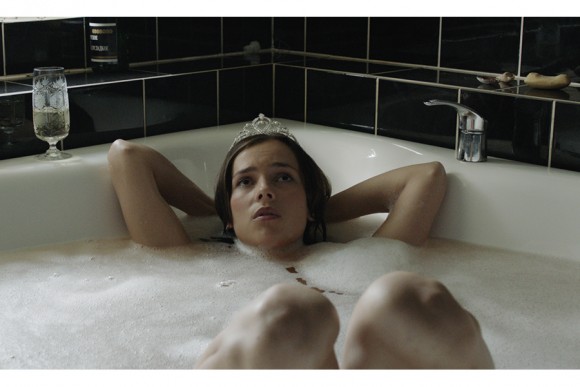The film captures youth in the uncertain time between the overthrow of the communist regime and the digital era. It’s not only Ruumet’s feature debut, but also the first feature-length film of the producer, cinematographer, editor, production designer and composer in her crew.
Driving fast like a Grand Theft Auto hero, hanging out with girls in the woods, and drinking vodka as if it was water: the antics of the characters are all tinged with trashy but catchy local pop music, and shot in a style that calls to mind Vice magazine. In the summer heat 27-year-old Allar (Hendrik Toompere Jr. Jr.) and his friends kill time aimlessly. They seem to own the world, but under the surface they desperately seek a meaning to their lives. When Allar causes a terrifying car accident, it’s the catalyst for his own search for purpose. But, as it was back then and in a different way still is, the journey isn’t straightforward. Looking for the path to a better future works as the film’s leitmotif. The narrative is in some moments absurd and lacking in credibility, but the energy of the story completely makes up for the weaker moments.
The clear vision of the young team of filmmakers carries through the whole film and outlines what impact the wild ‘90s had on life in post-communistic countries, mainly on young people struggling not only with a new way of life, but life-shaping episodes. The depiction of the era is supported by much visually striking imagery, for instance two lovers under felled trees, boys “crucified” on water tanks in the middle of nowhere, and sweaty disco sequences. Added meaning comes with the contrast between those times, when aimless days floated by, and the hasty pace of nowadays; between the young filmmakers and the era of their childhood they have chosen as the background of the debut. It is obviously a subjective glimpse of fragments of their own formative years, and this is the most appealing aspect of The Days That Confused.
This enduring testament of Generation Y in a rural environment deserves audience attention and if you are willing to be drawn in by the mood of the film, you will be rewarded with an original and vivid approach to recent eastern and central European history. Ruumet and her colleagues are definitely up-and-coming filmmakers worth following. Their romantic approach to life as portrayed through memories of kids who avoid a deep analysis of society is refreshing. An older audience may not be so receptive - but maybe it’s time they were.




















